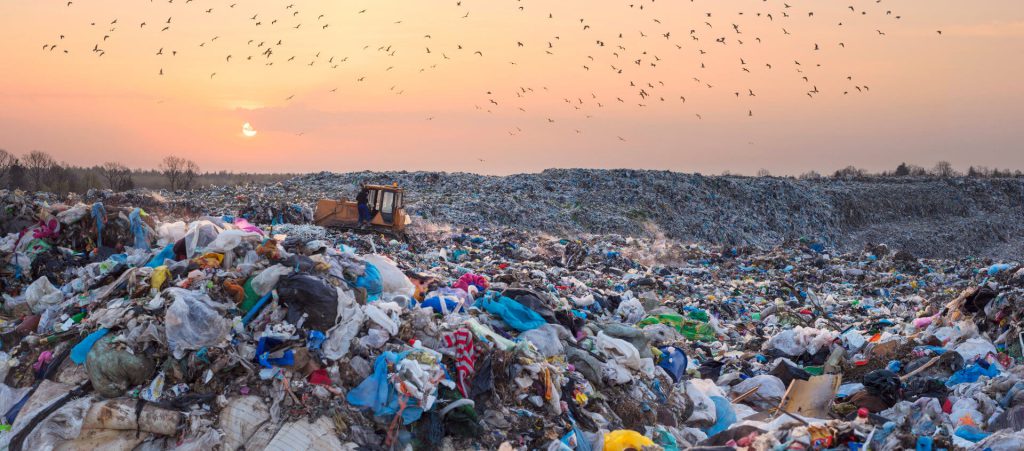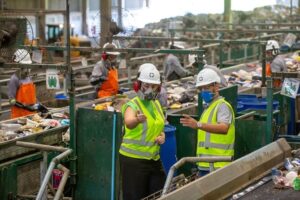
Although we now understand that open dumps are a danger to the environment and surrounding communities, we still see few actions to address this issue. What causes open dumps like the one in the Atacama Desert, Chile, which receives branded clothes from other countries?
What are open dumps?
Open dumps are places where discarded waste is deposited, produced by the linear consumption logic, that is, the process of producing, selling, consuming, and discarding. In these environments, not only is the potential of these materials for other uses ignored, but there is also no basic care for environmental and sanitary control.
This practice leads to:
- Contamination of soil, groundwater, and nearby waters by material decomposition and the presence of disease-carrying animals.
- Health risks to the population due to contamination.
- Methane emissions, worsening global warming due to untreated decomposition of materials.
- Exposure of vulnerable communities to informal and unhealthy work instead of creating jobs through waste valorization.
According to ABRELPE, in Brazil in 2022, of the 76,118 tons of urban waste collected, 12,384 tons ended up in open dumps, 17,322 tons in controlled landfills, and 42,141 tons in sanitary landfills without utilization. Only 4,271 tons of urban solid waste in 2022 in Brazil were directed to facilities for reuse and/or valorization, such as the Orizon ecoparks.
What causes open dumps like in the Atacama Desert?
Open dumps emerged as an attempt to take waste to isolated locations without considering their full impact.
Despite knowing this is one of the worst ways to manage waste, various factors contribute to their persistence, including the lack of public policies and international agreements to prevent this practice and encourage proper waste disposal.
For example, clothes discarded in the Atacama Desert reveal problems with international agreements. Companies from the U.S., Europe, and Asia exploit loopholes in legislation or enforcement to dispose of their waste in such areas.
It is essential to have laws to reverse this situation. In Brazil, the National Solid Waste Policy mandates that by 2024, all dumps must be closed. Through the National Zero Dump Program, 800 of the 3,257 dumps recorded in the country have already been closed.
Ending dumps is not the solution
As dumps reflect a linear economy, ending them without systemic changes is financially and ecologically ineffective.
It is urgent to consider new technologies, such as the Orizon ecoparks, that treat waste as materials to be recovered and reused in different industries.
Applying circular economy to waste management is essential, as waste can be reintroduced into production through:
- New products through recycling;
- Organic fertilizers via industrial composting;
- Electricity from biogas;
- Natural gas for vehicles.
Thus, beyond control laws, we need to encourage waste valorization technologies and create tools to stimulate circular and ecological initiatives, such as Decree No. 11,413, which promotes recycling.
In this model, waste, currently seen as a problem to be outsourced, can become inputs for other industries. For instance, ecoparks that sort and process these materials contribute to sustainability, economic growth, and the creation of regulated and safe jobs.
Want to understand how we can valorize waste to achieve sustainability and create opportunities? Check out the 2023 Sustainability Report by Orizon to learn about the positive impact generated in our ecoparks.



